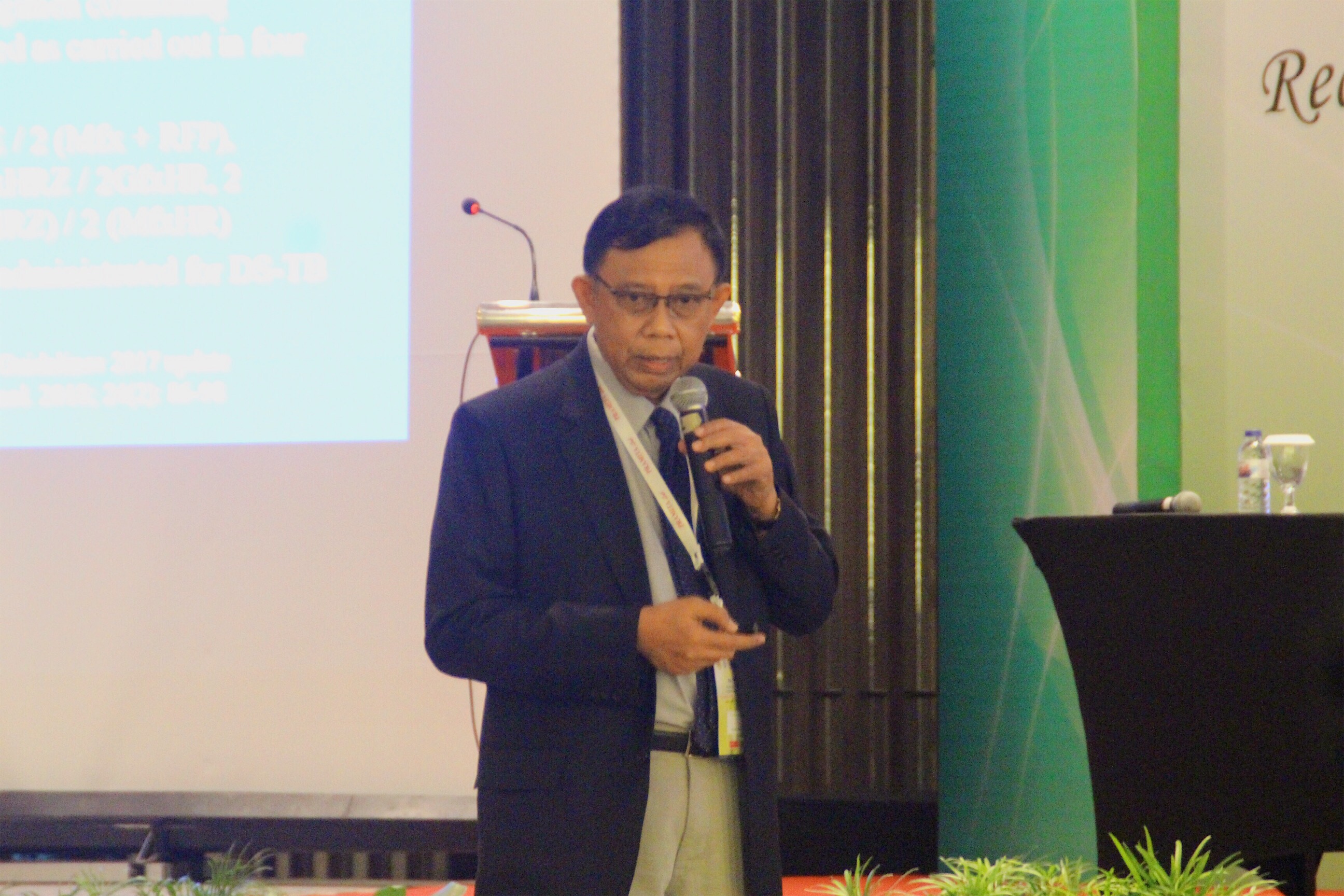UNAIR NEWS – In recent years Multidrug Resistant / MDR-Tuberculosis (TB) cases in Indonesia have been widely discussed. Concentration occurs because of an increase in the number of MDR-Tb sufferers. Tuberculosis (TB) resistance is actually caused by human behavior which does not comply with the procedure, due to incomplete regimen, dosage or treatment.
Previously, TB Resistance cases in Indonesia were ranked 9th in the world. In the span of several years it continued to increase, the latest data said that Indonesia had risen to the 7th position in the world. So there is a question why resistant TB patients have increased every year.
Dr. Soedarsono, dr., Sp.P. (K) in “Indonesian Tuberculosis International Meeting 2019” symposium explained that handling of TB-resistant cases should be handled carefully. This is because the percentage of disease recovery rate is lower than mortality rate.
He continued that the main obstacle to TB resistance problems lies in the duration of patient treatment who are fairly long, ranging from 18-20 months. At the treatment stage patients are required to routinely perform treatment almost every day and the treatment given is not only with drugs but also injections. As a result, many TB patients drop out of the treatment phase prematurely.
“You can imagine the impact of the patient’s psychological state on his daily life depending on the drug. Not to mention the side effects of drug use. Because in some cases cause allergies, “he added.
He also said that patients’ internal aspects contributed to TB treatment drop out, from economic, social, even patient education. Many TB patients do not get support from the environment so it makes patients lose hope for recovery.
According to the lecturer of Faculty of Medicine UNAIR, the role of the health sector was not enough to solve the problem. Cross-sectoral cooperation is needed from various fields, such as economics, education and other fields. In order for TB-resistant treatment to be controlled.
“Nowadays special regulations are applied for TB resistant patients, which requires them to come directly to health services. Drug consumption must be under the supervision of health practitioners to reduce the risk of patients who do not routinely take medication,” added Dr. Soedarsono.
Research is conducted continuously to find effective treatment methods to combat the cases. TB expert from Dr. Soetomo Hospital explained that recently a regimen for TB resistant patients with a short duration of treatment was between 9-11 months.
Furthermore, the suggested treatment will be given through oral drugs without injections to patients. The combination of drugs is expected to give the patient’s recovery and cases of treatment drop out patient will not happen again.
Author: Tunjung Senja Widuri
Editor: Khefti Al Mawalia





